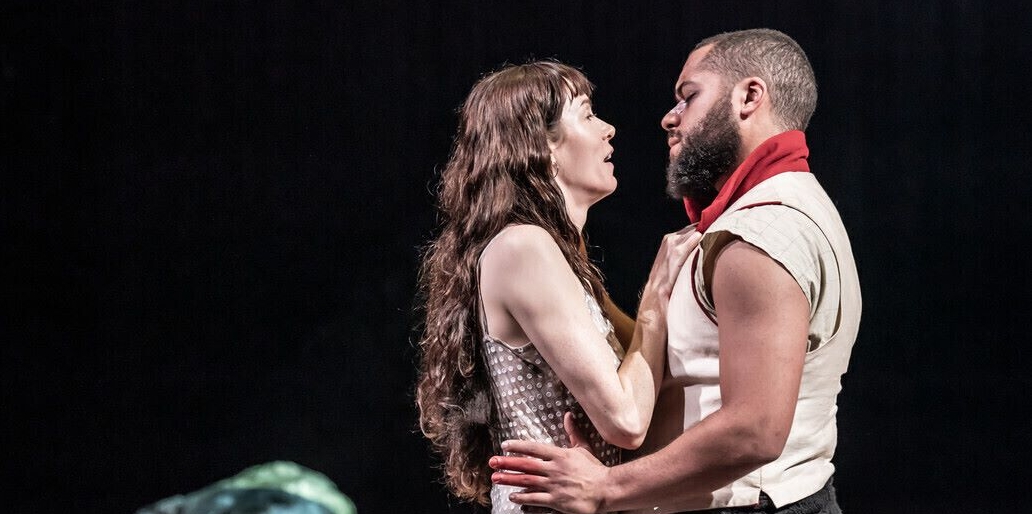The new production of Macbeth at the Royal Shakespeare company is one of the most theatrically imaginative, memorable, driven and exciting productions I have encountered. As theatre art it is a winner. The use of brass instrumentation, whistles, sax and trumpet and percussion and a bagpipe by an excellent ensemble of musicians drove and complemented the action. The energetic movement of the actors on stage was riveting throughout. The arrival of the witches was a highlight. There is also a stand-up newly written comic routine for the Porter, played with appropriate aplomb by Alison Peebles. I liked the use of the Scottish accents and Scottish visual references. This production is startlingly original memorable theatre in its own terms.
The acting is strong. Valene Kane makes a terrifyingly attractive Lady Macbeth. She also has the kind of beauty that makes one understand why she attracted a macho warrior like Macbeth in the first place; and Reuben Joseph makes a believable, ambitious Macbeth becoming troubled by his conscience more and more into madness. Clearly and uxoriously in love with his wife, the couple’s sexual attraction is potent. The sequence in which Macbeth and Lady Macbeth perform the murders was a standout. The pacing made it memorable. Other standout and cleverly paced moments included the whole of the banquet scene with Banquo’s troublesome ghost, the Sleepwalking Scene, Macbeth’s reaction to the death of his wife and the staging of how Birnam Wood moved towards Dunsinane. The whole evening was a very fine theatrical event.
The play seemed to me set in no particular time period. The advantages of that included being able to be topical and therefore the make Duncan not the king but a queen played by a woman; and Malcolm also a young woman. Duncan was certainly well played by Therese Bradley. Malcolm, the day I attended, was played by Amelia Isaac Jones due to the indisposition of Shyvonne Ahmmad. Amelia Isaac Jones gave a convincing performance of someone who grew into a formidable opponent to Macbeth. My only problem was with the habit these days of casting women in parts written as men. I understand that, among other things, it helps find more work for women actors. Also that if you are looking to “contemporise” a play and make it relevant to today’s world, there is no reason why Banquo as Macbeth’s sidekick could not be a woman as she very well might be in today’s military. And yet for me it sometimes simply does not quite work though I liked Anna Russell-Martin as Banquo. Perhaps I have just seen the play too often and know the setting too well to be totally convinced, however. I had no problem at all with the Porter being played by Alison Peebles. She was brilliant and funny. And I certainly thought that the updating of the Porter Scene by Stewart Lee was an inspired idea and brilliantly realized in every way. But the actual historic situation in which Banquo would have been a testosterone driven warrior simply sets up for me a kind of jarring undercurrent that creates a kind of ongoing static.
So there you are! I admit it! I think that some of the crossing of sex for various roles is not only jarring but also dramatically less cogent than sticking to the original sexual distribution of the characters in the text. And I did like George Anton as Macduff!
Nevertheless, I really enjoyed the show and recommend it. It was suitably dark when necessary, strongly acted, imaginatively directed by Wils Wilson who also suggested a level of political satire and relevance to several things troubling our world today. The reading of the actual text of the play was convincing and intelligent. And the theatricality of the actual staging was powerful, refreshing and compelling throughout.

